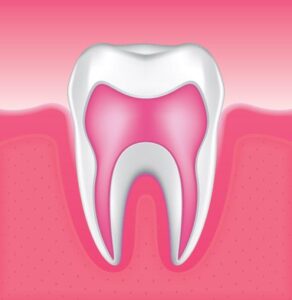23 Aug Gum Disease: Targeted treatment with lasers
 Early stages of gum disease can be reversed through professional cleanings, but as the condition progresses, surgical interventions may be needed. Some patients may be reluctant to seek treatment for advanced gum disease, concerned that it will involve sharp surgical instruments and a great deal of discomfort.
Early stages of gum disease can be reversed through professional cleanings, but as the condition progresses, surgical interventions may be needed. Some patients may be reluctant to seek treatment for advanced gum disease, concerned that it will involve sharp surgical instruments and a great deal of discomfort.
Laser dentistry offers these patients a painless technique for periodontal surgery that may be used to address gum disease. Some patients may even be able to pursue local anesthetics for the procedure.
In order to treat gum disease, which occurs in stages, a dentist needs to reduce the presence of oral bacteria along the gum line. Those bacteria can cause inflammation, leading to a progression in gum disease.
Lasers can detect unhealthy gum tissue and remove that tissue, a characteristic that is useful in reducing the size of pockets that develop in the gums. Lasers are also much more precise than conventional surgical instruments are.
When the dentist uses lasers in gum disease surgery, the side effects are less noticeable. Patients heal faster and they have less discomfort and swelling.
Lasers can also be used for non-surgical interventions. The lasers offer an additional method for eliminating oral bacteria.
At the same time, lasers are useful in improving the appearance of the gums. Lasers can be used in lieu of a scalpel to eliminate excess gum tissue that has a detrimental effect on the smile’s aesthetics.
Patients with symptoms of gum disease, including bleeding or swelling of the gums and pockets between the gums and the teeth, should consult with a dentist for a definitive diagnosis. Discuss all available treatment options as you decide which course to pursue, and consider lasers for a more comfortable intervention.
After treatment, be sure to maintain a complete oral hygiene routine, including brushing and flossing, to reduce your risk of a gum disease relapse.
For more information on using laser dentistry for gum disease, call the Dallas office of Dr. Philip Kozlow today to schedule a consultation.
